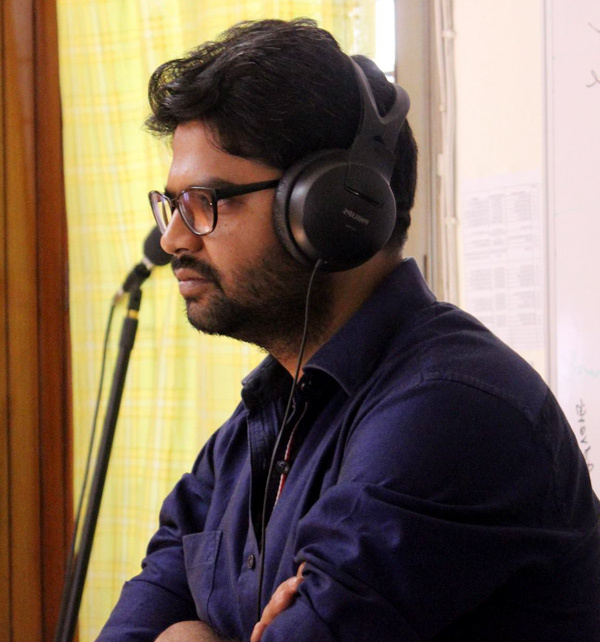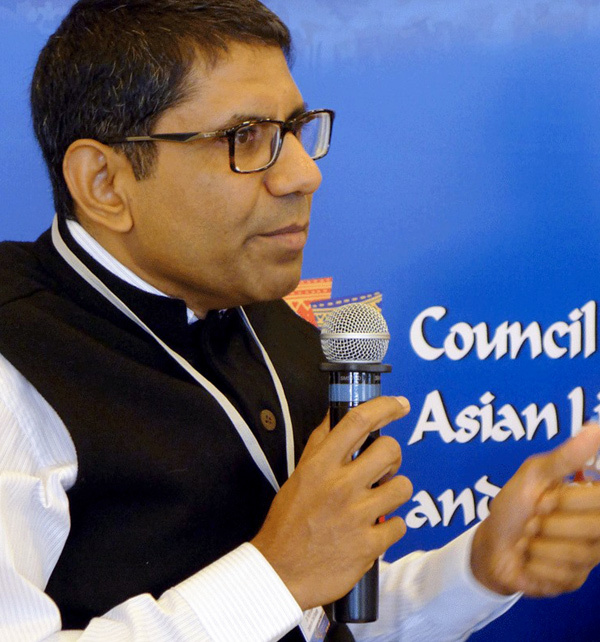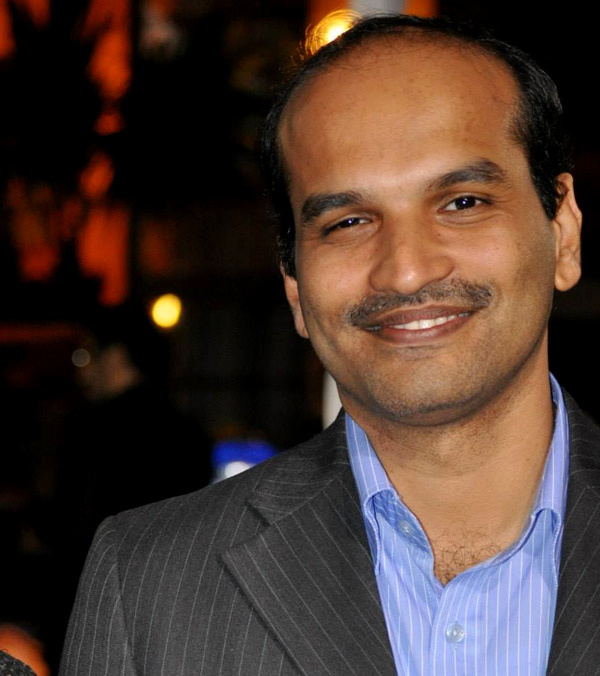Eric D. Dixon
Tarun Vats
SOME VICTORIES FOR LIBERTY ARE SO DRAMATIC that they immediately change the course of history, like the fall of the Berlin Wall in 1989 and the dissolution of the Soviet Union on Christmas Day in 1991. Other victories take place under the radar, without fanfare, but can yield equally transformative results. Consider India, the largest democracy in the world. For centuries, the people of India struggled under a caste system that kept people regimented by genetic lineage into class, status, and even occupation. Decades of socialism and central planning in the 20th century made things even worse.
Then, in 1991, the same year that the Soviet Union dissolved, India began a process of economic reform that has gradually brought freedom, dignity, and prosperity to millions upon millions of individuals. Within a decade, the average income in India had doubled, and nearly 250 million people — about a fifth of the population — have risen out of poverty since then. This transformation is remarkable, but it is still ongoing. People who want to work and build new businesses face an array of obstacles. Informal and black markets comprise the vast majority of India’s economic activity. Hundreds of millions of people in forgotten rural populations struggle to survive in the face of a regulatory regime that doesn’t understand their needs or protect their rights.
Much like the market process itself, discovering the best strategies for successful policy reform requires a decentralized approach. Atlas Network partners throughout India are taking this approach, which is leading to policy change and prosperity for Indians across the country.
REMOVING BARRIERS TO ENTREPRENEURSHIP
Social change advances along many fronts simultaneously, and the Centre for Civil Society (CCS), based in the capital of New Delhi, has spent years building wide-ranging programs that give the people of India tools to forge new paths in life. After receiving a grant in Atlas Network’s Leveraging Indices for Free Enterprise Policy Reform (LIFE) program, CCS set out to improve India’s ranking in the World Bank Group’s “Doing Business” index by laying the intellectual groundwork necessary to eliminate minimum capital requirements for new businesses. The organization achieved a landmark victory after sharing its reform proposal with the government official in the Ministry of Commerce and Industry.
Until recently, India’s minimum capital requirements stifled entrepreneurship throughout the economy by requiring 111.2 percent of per-capita income to be paid up front. Thanks to the policy reform efforts of CCS and its Ease of Doing Business project, minimum capital requirements were rescinded in 2016, along with the need to obtain a government certificate before beginning business operations.

SMALL SHOP IN NEW DELHI, INDIA. PHOTO CREDIT: SAIKO3P / SHUTTERSTOCK.COM
“I believe that the removal of the minimum paid-up capital requirement will help in bringing a level playing field for all entrepreneurs, big or small,” said Amit Chandra, associate director of policy advisory for CCS. “India is ranked 158th in the ‘starting a business’ section of the Ease of Doing Business Index of 2015, published by the World Bank. The removal of the country’s minimum paid-up capital requirement alone can help India to move up 22 positions to 136th place.”
When governments require a significant capital investment before starting a business, potential entrepreneurs face strong and sometimes insurmountable barriers. One consequence is that many of those entrepreneurs turn to the vast informal economy. Workers in countless gray-market professions, however, are subject to arbitrary enforcement measures, including punitive fines, bribery solicitations, property seizures, violence, and imprisonment. Secure rights to earn a living, bolstered by a consistent rule of law, instead allow struggling laborers to flourish.

"Removal of the minimum paid-up capital requirement will help level the playing field for all entrepreneurs." —Amit Chandra, Associate Director of Policy at Centre for Civil Society
“I met Mohammed Zia in 2010 while working on a constitutional litigation [case] involving the economic freedom of cycle rickshaw pullers,” said Prashant Narang, with the CCS legal advocacy project iJustice. “Zia came from Bihar, a poor state in eastern India, to New Delhi around 2005–06 with little money in his pocket. He [rented a] rickshaw for half a dollar per day and plied it himself. In 2010, when I met him regarding the litigation, he owned 110 rickshaws! I could not believe it. This was amazing.”
Zia expanded his operations without job guarantees or minimum wage regulations, Narang explained, and helped provide other migrants with similar opportunities by renting out his rickshaws to them. Unfortunately, his business was illegal before 2010 because of a rule mandating that anybody operating a rickshaw must also be its owner, making it vastly more expensive for individuals to enter legal rickshaw service. When the High Court in New Delhi declared the rule to be unconstitutional in February 2010, Zia finally became a lawful entrepreneur by providing the same type of value to society that he had offered all along.
His business was illegal before 2010 because of a rule mandating that anybody operating a rickshaw must also be its owner.
STREET VENDORS AND THE INFORMAL ECONOMY
“We fight for economic freedom and property rights of the informal sector — street vendors, cycle rickshaw pullers, micro entrepreneurs — that makes up 90 percent of India’s workforce,” said CCS President Parth Shah. They work in places like factories, construction sites, restaurants, and wealthy homes.
The most visible, though, are India’s street vendors — estimates range from 10 to 25 million — who set up shop anywhere they can find space and sell a dizzying array of wares and services. They epitomize the entrepreneurial spirit, using what little means they have to provide a valuable service to others — and the communities in which they operate depend on their convenience and low prices.

"We fight for economic freedom and property rights of the informal sector that makes up 90% of India's workforce." —Parth Shah, President of Centre for Civil Society
Despite the valuable role that street vendors play throughout India’s urban centers, their informal status has often made them subject to vast public-sector corruption, bribe solicitations, raids, confiscations, and evictions. The documentary film India Awakes, produced by Free to Choose Network, tells the story of one such vendor, Banwari Lal Sharma, who started his first food cart with his wife more than 20 years ago. Together, they expanded their business through tireless work and struggling through years of hostility from authorities, and he is now president of a growing association of street vendors who fight for their legal status and protection. Thanks to their efforts, along with years of policy research and advocacy by India’s free-market think tanks, things are beginning to improve. Legal status and protection enables street vendors to make longer-term entrepreneurial plans, invest in better goods and production, establish a higher standard of living, and create jobs for others.

THANKS TO HIS TIRELESS WORK, BANWARI LAL SHARMA WAS ABLE TO GIVE HIS DAUGHTER THE WEDDING SHE DESERVED, PICTURED HERE.
AIDING FORGOTTEN RURAL POPULATIONS
India has more bamboo than any other country in the world, but China controls more than 83 percent of the global bamboo market despite having less than half of India’s acreage. The longtime classification of bamboo as a tree rather than a grass, a regulation that has persisted in India dating from the early 20th century, is largely responsible for the country’s stunted market. CCS has campaigned for years toward this simple classification change, which could allow one of India’s largely untapped renewable resources to boost industry throughout the country — and especially provide new livelihood opportunities within rural areas.
In order for India’s rural people to participate successfully in the economy, legal systems must protect their property rights.
“Our campaign ‘Bamboo is Not a Tree’ challenges the law that classifies bamboo as a tree and thereby makes this renewable and abundant resource inaccessible to forest-dwelling tribal communities,” Shah said. “The small farmers are unable to earn their rightful livelihoods because of the restrictions on storage, trade, and transport of their produce.” Although India’s central government classified bamboo as a grass in 2011, state and local regulations have not aligned with the national ruling. CCS continues to advocate reform of bamboo regulations at all levels of government.
In order for India’s rural people to participate successfully in the economy, however, legal systems must recognize and protect their property rights. That’s why the Liberty Institute has focused on helping agrarian tribes regain title to their ancestral lands by promoting and expanding the work of Action Research in Community Health and Development (ARCH), an NGO doing innovative work in the rural and forest areas of Gujarat, a state in western India. These tribes had their land declared the king’s property during British rule, and even after India gained its independence in 1947, land claims remained unofficial. Their villages were subject to raids, property seizure, and forced eviction by government officials. Their precarious legal position left them without any reason to invest in efficient cultivation, or to improve their homes, lands, or other property that could be destroyed or taken at any time — and they gained a strong incentive to extract as many resources as possible from their depleting surroundings.
The famed Peruvian economist Hernando de Soto had chronicled the fundamental importance of clear property titles in his groundbreaking book The Mystery of Capital, but the compelling economic arguments hadn’t translated to real reform in rural India — until Ambrish Mehta and his wife Trupti of ARCH took matters into their own hands. They began working with a village led by a Sagai tribal leader named Rama Bhai, whose applications for title had all been refused.
ARCH developed an innovative combination of GPS plotting and archived Google Earth satellite images that eventually allowed the tribes to prove their property claims and acquire legal title to their traditional lands, as well as a new future of security and investment in efficient production. By taking practical action to help the tribe gain legal recognition for its property, ARCH helped them transform the land from a burden into an asset and opportunity for future prosperity.
“My role has been primarily promoting ARCH’s work, because land and property rights are so fundamental in developing countries like India, and this success of ARCH is a real life demonstration of how principles could be put in to actual practice,” said Liberty Institute founder and director Barun Mitra. “My involvement has been towards facilitating ARCH’s work, and trying to expand it. I consider myself fortunate to have learned from ARCH’s work in such an unique way how ideals could actually be implemented, and make an impact.”
The Liberty Institute and ARCH helped the local tribes transform their land from a burden into an asset and opportunity for future prosperity
SECURING LEGAL RIGHTS
In order to exercise their rights, people also need reliable information about the law. The India Institute in New Delhi has spent the past six years producing innovative policy research about educational choice, property rights, and legal reforms. Then, two years ago, the organization devised a practical way to help ordinary citizens understand and protect their rights more effectively by developing a new mobile app named “i-torney: your pocket lawyer.”
The i-torney app is designed to serve as an easily accessible tool to help people in India learn more about their legal rights, especially during interactions with law enforcement. The project began as a winning project pitch during Atlas Network’s annual $25,000 Think Tank Shark Tank competition in 2014. In the two years since then, i-torney has developed into a vital tool that arms ordinary people with specialized knowledge.
“Even as India is achieving several development milestones in quick succession, one area that has not improved much in decades is our criminal justice system, especially police reforms,” said Baladevan Rangaraju, India Institute founder and director. “After several commissions and committees and a Supreme Court ruling, implementing police reforms has been a major challenge for us. It is reflected in the huge number of custodial assaults and deaths (one every three days), and in the fact that more than two thirds of our jail inmates are undertrials — that is, accused but not yet convicted. i-torney is our humble effort to improve police accountability by empowering the common man with knowledge of his legal rights against attack on his life and liberty, and the facility to seek immediate help when the same are under threat.”
Even as India is achieving several development milestones in quick succession, one area that has not improved much in decades is our criminal justice system, especially police reforms. —Baladevan Rangaraju, Founder and Director of India Institute
FIGHTING THE DANGERS OF LIQUOR PROHIBITION
India faces a wide array of other threats to freedom. In addition to its extensive research and policy advocacy, the Centre for Public Policy Research (CPPR), based in the southern Indian city Kochi, focuses on promoting and popularizing classical liberal values that emphasize the inherent worth and dignity of every human life — a stark contrast to the remnants of India’s roots in a regimented caste system and grinding socialist oppression. These values form the core of CPPR’s work to reform public institutions, strengthen the rule of law, and empower India’s marginalized residents through community development programs.
One of CPPR’s high-profile reform projects is its campaign to liberalize the liquor trade in India, in the face of longstanding alcohol prohibition in the western state of Gujarat, the southern state of Kerala, the eastern state of Nagaland, and Lakshadweep, a group of islands situated off India's west coast in the Arabian sea — followed in 2016 by a new liquor ban in the eastern state of Bihar. CPPR’s work explains why alcohol prohibition creates a wide array of new problems without solving the old ones, spawns black-market liquor shops and unsafe homemade products that claim hundreds of lives each year, and devastates livelihoods for millions of farmers.
“We have global experience; we have regional experience,” said CPPR chairman D. Dhanuraj, in an interview with India’s CNBC TV 18. “The global experience is from countries like the U.S., where they had banned alcohol consumption, alcohol sales in the early 20th century. But they failed in the attempt. They figured out that liquor bans, in fact, created black markets. And the same is the case with the liquor ban that is existing in four states in India.”

"Liquor bans, in fact, created black markets. And the same is the case with the liquor ban that is existing in four states in India." —D. Dhanuraj, CPPR Chairman
The prohibitionist mindset is entrenched in India, so this fight will be ongoing for some time. CPPR hopes that by augmenting its research programs and publications with a robust focus on the philosophy of individual liberty, it can help change the culture’s inclination to control the personal decisions of others.
“Atlas Network partners have been able to germinate the liberal space in the minds of the young generation in recent times,” Dhanuraj said. “Different partners have different styles of functioning. Some of them nurture research and publication, while others are into liberal philosophy training and advocacy. All these efforts are complementary to each other.”
TRANSFORMATION THROUGH MARGINAL CHANGE
India, the world’s largest democracy, has been in a continual process of incremental reform for the past 25 years — but small changes can have an exponential impact. Ending minimum capital requirements unleashes entrepreneurship, reclassifying bamboo as a grass opens new commodity markets, creating the i-torney mobile app brings information about legal rights to people with the click of a button, new protections for property rights uplift India’s rural populations, and liquor liberalization helps put an end to dangerous black markets. Each marginal step taken by Atlas Network partners throughout India is leading to the transformation of an entire nation.

Each marginal step taken by Atlas Network partners throughout India is leading to the transformation of an entire nation.